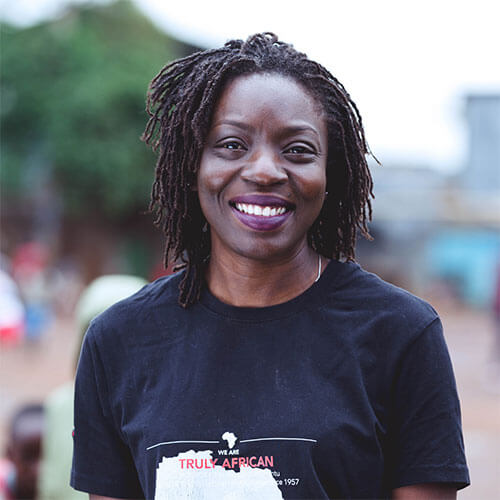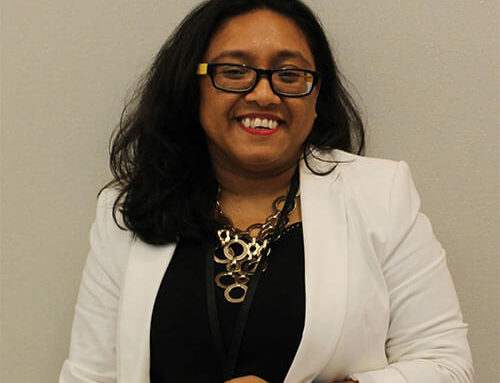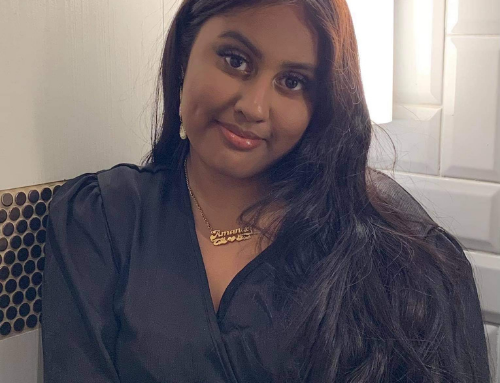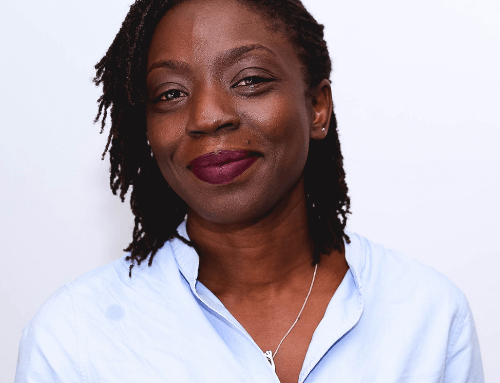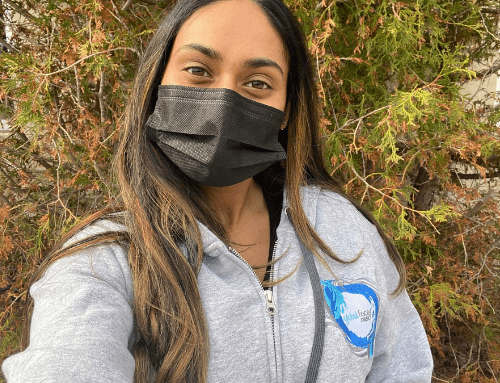Onome Ako, Executive Director, Amref Health Africa in Canada
As the global community grapples with the novel coronavirus, several words and phrases are being repeated in our world: social distancing, self-isolation, quarantine, sanitizer, and handwashing. These words are clear advice and actions we can all take to curb the rapid spread of COVID-19.
I have embraced all of these. I, along with my colleagues, have been working from home for the last week; when I need to go out to the shops to buy groceries, or go to the pharmacy, I am aware of the space between me and the next person, constantly moving to ensure that there is a two-metre distance (about 6 feet) between us, as recommended by the Public Health Agency of Canada. I respectfully decline a handshake from people and good-humouredly refuse hugs from friends and family. We all understand. We are fighting a common enemy. COVID-19. No offense is taken.
I carry hand sanitizers everywhere, using them as needed. At the slightest opportunity, I wash my hands. I am more conscious of it. While at it, I attempt to sing the happy birthday song. Twice. It gives me time to wash well between my fingers, and underneath my nails. I smile while doing it, thankful for the fact that my tap has running water, the luxury of hot and cold.
As COVID-19 makes its way to Africa – with 34 countries reporting more than 570 confirmed cases and 12 deaths as of March 20 according to the World Health Organization – I wonder about these words and this advice we are hearing every day in Canada from our public health officials, and how they apply in some of the most remote communities where Amref Health Africa works. While COVID-19 so far has no known treatment, one of the actions that would help minimize the risk of infection – washing hands with soap and water – can be a luxury in these communities.
According to the World Health Organization, 780 million people are without access to clean water. This is 1 in 10 people. 40% of those people live in sub-Saharan Africa. In addition, 2.5 billion people need improved sanitation; this is a third of the world. Women and girls are disproportionately affected as they have to walk long distances to find water. Also, every 60 seconds a child dies from a preventable waterborne disease such as cholera and dysentery. The lack of access to clean water and sanitation in some of the poorest countries in the world will make handwashing, one of the most seemingly simple ways to reduce the spread of COVID-19, almost impossible.
In the last few weeks, various African presidents have heeded the call of the World Health Organization and have joined in its social media campaign #safehands to show proper handwashing practices. As we celebrate World Water Day on March 22, a day that focuses on the importance of water, I am reminded of the millions of people who lack this basic human necessity, who cannot boldly take part in the #safehands campaign, or sing the happy birthday song twice while washing their hands.
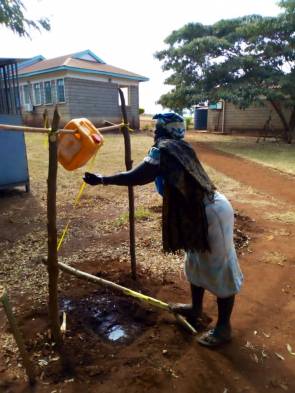
Now more than ever we need a concerted global effort to ensure everyone has access to clean water, no matter where they live. In the immediate term, we need investment to scale up innovations that communities in Africa have already created, such as ‘tippy taps’ – often a jug with small hole in it and a string attached. When the string is pulled (or triggered by a homemade foot pedal), clean water pours out of the jug onto the soapy hands of the person below. You can see these inventions outside latrines at homes in very remote communities where Amref Health Africa works. While ‘tippy taps’ don’t solve the challenge of having to walk sometimes long distances to collect clean water and carry it home, they do offer an affordable, easy way to ensure more people in some of the poorest countries in the world can reliably wash their hands during this pandemic.
It also means continued and increased investment in long-term development projects that bring sustainable clean water solutions to communities. In Tanzania, for example, through our Canada-Africa Initiative to Address Maternal, Newborn, and Child Mortality, in partnership with WaterAid Canada
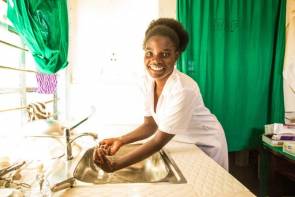
Credit: WaterAid Canada
and supported by the Government of Canada through Global Affairs Canada, we have built the infrastructure needed to ensure health facilities have clean, running water. Nurses, such as Grace Nabenga Lufu at the Kakora Health Centre, now just need to turn on a tap and the water flows, making it much easier for her and her colleagues to practice safe hygiene and infection control. Because of this long-term investment in clean water, more health facilities in Tanzania are now better prepared for the COVID-19 pandemic.
Building clean water infrastructure that will last for generations needs support now, so that more communities in sub-Saharan Africa are prepared with basic necessities of life the next time a global health emergency strikes.
Let’s remember this today, as we collectively fight COVID-19. After we have won the battle against COVID-19, let’s remember that many remote communities in Africa will continue to fight preventable diseases caused by lack of access to clean water and sanitation.

